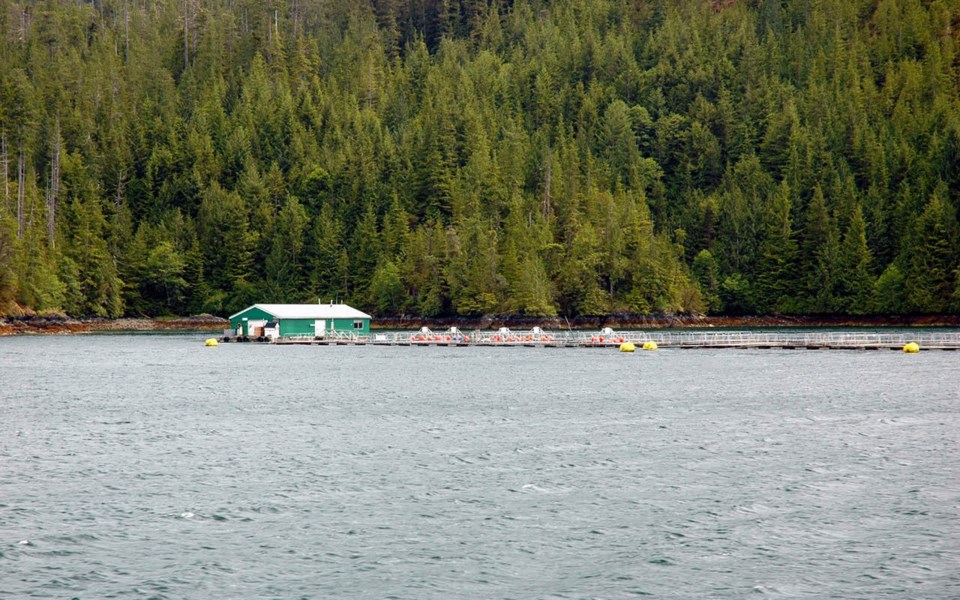Sea to Sky conservationists are hopeful an announcement last month that several fish farms will be removed from the Broughton Archipelago signals the government's appetite to transition the province's aquaculture industry away from open-net farming.
Announced Dec. 14, the agreement between the provincial and federal governments, First Nations, and two fish-farm companies will see all 17 fish farms in B.C.'s Broughton Archipelago (a group of islands on the northeastern flank of the Queen Charlotte Strait) either closed or relocated over a number of years in order to create a migration path for wild salmon.
"This is the first indication of any farms being shut down and the government is getting serious about accountability on that front," said Dave Brown, member of the Sea to Sky Fisheries Roundtable. "It has to definitely be viewed as a positive, and hopefully this will be the first step into transitioning the whole industry towards closed-containment (farming) or no longer having open-net farms in our oceans."
The plan calls for four farms to be closed this year, two in 2020 and four in the two years after that. The remaining seven tenures will also end unless they obtain First Nations approval and a licence from Fisheries and Oceans Canada (DFO).
Studies have shown that open-net fish farms can spread harmful parasites to wild salmon as they migrate past the farms. In 2017, a landmark report led by fish advocate Alexandra Morton found that wild salmon exposed to open-net farms were far more likely to be infected with piscine reovirus than those that weren't exposed. The study showed that 45 per cent of wild salmon in the Broughton Archipelago and 37 per cent in the Discovery Islands were infected with the virus, which makes it more difficult for salmon to swim upstream to their spawning grounds. The B.C. Salmon Farmers Association has said there is no evidence that farmed salmon negatively impacts wild salmon.
"This is only the beginning," said Stan Proboszcz, science advisor for the Watershed Watch Salmon Society, in a release. "Salmon farms in other areas like the Discovery Islands and the West coast of Vancouver Island are still a threat to B.C.'s wild fish. First Nations and citizens across B.C. have been clear that this dirty industry has no place in our shared waters."
The closures stem from new provincial guidelines announced in June that require fish farms to obtain First Nations' approval to operate in their territory. Under the regulations, farms also need to prove to DFO that their operations do not have an adverse impact on wild salmon.
The Namgis, Kwikwasut'inuxw Haxwa'mis and Mamalilikulla First Nations were part of this most recent agreement.
Bob Chamberlin, chief councillor of the Kwikwasut'inuxw Haxwa'mis, told media that the agreement is "critical to Canada's development. We're seeing a jointly defined government, First Nations process come to shared recommendations."
Brown applauded the government for involving First Nations in the decision-making process.
"I commend the government for making sure they engage the First Nations because I think that's the only way the process can move forward in a diligent manner," he said.
The agreement also includes requirements to implement new technologies aimed at reducing risk to salmon on the farms, such as sea lice, as well as plans to restore wild salmon habitat in the Broughton Archipelago.
Brown is hopeful government officials will next look to shutter fish farms in the Discovery Islands, a focus of the 2012 Cohen Commission, which warned of the potential impact fish farms there could have on wild salmon.




